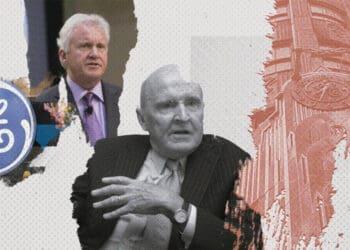co-written by William “Widge” Devaney
This is part two of a three-part series revisiting key FCPA enforcement actions and developments in 2013. Read part one here.
Sentences
As demonstrated below, the sentences handed down in 2013 were a mixed bag, and (except for Frederic Bourke) all individuals cooperated with the government to some extent.
- Paul Novak was sentenced to 15 months in prison and was forced to pay a $1 million criminal fine for his involvement in the Willbros case. In sentencing Novak, the Court took Novak’s cooperation into consideration.
- Hans Bodmer was sentenced to time served and forced to pay a $500,000 criminal fine in connection with the Bourke/Kozeny matter. Like Novak in the Willbros case, Bodmer cooperated with the prosecution in the Bourke/Kozeny matter.
- Thomas Farrell was sentenced to time served, with no period of supervised release, in connection with his involvement in the long-running Bourke/Kozeny matter. Farrell also agreed to cooperate with prosecutors.
- Clayton Lewis was also sentenced to time served in connection with the Bourke/Kozeny matter. (In 2003, after his arrest, Lewis served six days in prison. In 2004, Lewis agreed to cooperate with prosecutors.)
- Flavio Ricotti was sentenced to time served in connection with the Carson/CCI case. Ricotti, an Italian citizen, was detained in Germany and extradited to the United States. He was the third CCI employee to plead guilty to FCPA-related charges. In all, Ricotti spent approximately 11 months in prison. Like Mario Covino and Richard Morlock (below), Ricotti agreed to cooperate with prosecutors.
- Mario Covino received no prison time in connection with the Carson/CCI case, but was sentenced to three months’ home detention and was forced to pay a $7,500 criminal fine. Covino agreed to cooperate with the prosecution in the Carson/CCI case.
- Richard Morlock also received three months’ home detention for his involvement in the Carson/CCI case and was forced to pay a $5,000 criminal fine. Morlock agreed to cooperate with the prosecution in the Carson/CCI case.
- Frederic Bourke, co-founder of luxury goods purveyor Dooney & Bourke, finally exhausted all available appeals of his 2009 conviction and reported to a federal penitentiary to begin serving his sentence of a year and a day.
- Neil Uhl, the former vice president of finance at BizJet, and Peter Dubois, the former vice president of sales and marketing at BizJet, were each sentenced to home detention for eight months and probation for five years. Their sentences were reduced based on their cooperation with the government’s investigation. Two other co-defendants, Bernd Kowalewski, the former president and CEO of BizJet, and Jald Jensen, the former BizJet sales manager, remain abroad. Uhl and Dubois pleaded guilty in January 2012, but their pleas were not unsealed until April 2013, when the charges against Kowaleski and Jensen were also unsealed.
Litigation
In 2013, the FCPA continued to appear regularly on court dockets, although there were no criminal trials in 2013. The SEC, however, faced two distinct challenges to its expansive interpretation of FCPA jurisdiction in the United States District Court for the Southern District of New York, with varied results.
- In SEC v. Sharef, before District Judge Shira Scheindlin, defendant Herbert Steffan, a German citizen and a former senior executive at Siemens A.G., successfully challenged the SEC’s expansive interpretation of its extraterritorial jurisdiction in a case where the only connection between the United States and the defendant’s role in the alleged foreign bribery scheme was a telephone call that originated in the United States. The SEC claimed that the underlying scheme involved payments made by Siemens’s Argentine affiliate to Argentine government officials in exchange for a contract to produce national identity cards. Allegedly, Steffen’s only role was to pressure the Argentine affiliate’s CFO to authorize the bribes, and Steffan’s only connection to the United States was his participation in a single telephone call initiated from the United States in connection with the alleged bribery scheme. Judge Scheindlin rejected this telephone call as a sufficient basis for asserting personal jurisdiction over Steffan, holding that Steffan lacked the necessary minimum contacts with the United States in order to make jurisdiction proper. In so doing, Scheindlin stated that “the exercise of jurisdiction over foreign defendants based on the effect of their conduct on SEC filings is in need of a limiting principle.” She concluded that, absent any allegation of Steffan’s role in the cover up of the bribery scheme, or his role in preparing the false financial statements at issue, the exercise of jurisdiction over Steffan would be unreasonable and exceed the limits of due process.
- By contrast, Judge Richard Sullivan held in SEC v. Straub that the Straub defendants, who are former executives of the Hungarian telecommunications company, Magyar Telekom, were subject to U.S. jurisdiction. The issue arose on the defendants’ motion to dismiss, inter alia, for lack of personal jurisdiction. In finding that there was personal jurisdiction over the defendants, Judge Sullivan found that defendants had “engaged in conduct designed to violate United States securities regulations,” in that they attempted to cover up bribes, signed false or misleading financial reports (that were then passed on to American investors), and signed false management representation letters to Magyar’s auditors. This was sufficient, for due process purposes, to make jurisdiction over the defendants reasonable.
On the criminal front, the Eleventh Circuit heard oral arguments in October 2013 in the appeals of Carlos Rodriguez and Joel Esquenazi, primarily challenging the definition of “foreign officials” and what constitutes an “instrumentality” of a foreign government.
- In U.S. v. Joel Esquenazi & Carlos Rodriguez, the defendants, former executives for Terra Communications, were found guilty in 2011 of violating the FCPA by bribing Haitian officials between 2001 and 2005. The government’s case was dependent on the argument that Haiti’s state-owned telecommunications company was a government instrumentality, and that its employees were therefore government officials. Esquenazi and Rodriguez claimed that the trial court erred in instructing the jury that employees of a state-owned telecommunications company could be considered foreign officials due to the fact that the company was an instrumentality of the Haitian government. Rodriguez argued that an “instrumentality” must be a direct part of a unit of the foreign government, and claimed that the government’s definition used in the jury instructions deprived defendants of a “clear line.” Esquenazi’s attorney proposed that the definition of “instrumentality” must derive from a core government function. This appeal is of great interest, as many FCPA enforcement matters turn on the issue of who is a foreign official.
The Ninth Circuit upheld the restitution orders against Gerald and Patricia Green, who were found guilty of violating the FCPA in 2009, and sentenced to six months’ imprisonment and joint restitution of $250,000. The Greens ran afoul of the FCPA in running a film festival in Thailand, where they secured contracts by paying bribes to Thai government officials. The Ninth Circuit upheld the restitution order even though the jury did not find an identifiable victim who suffered a pecuniary loss. The Supreme Court denied certiorari.
FCPA-related private litigation also continues to be active, even though there is no private right of action under the statute.
Shareholder Derivative Lawsuits
In the first half of 2013, shareholder derivative lawsuits filed in 2011 and 2012 suffered a series of setbacks. For example, in March 2013, the United States District Court for the Eastern District of Louisiana dismissed the shareholder derivative lawsuit pending against Tidewater Inc.’s directors, which alleged breach of fiduciary duty based on the company’s purported payment of bribes to Nigerian and Azeri officials. The dismissal was predicated upon plaintiff shareholders’ failure in 2012 to show that a demand on the Board would have been futile. Similarly, the United States District Court for the District of Nevada dismissed the shareholder derivative lawsuit pending against Wynn Resorts Ltd for failure to adequately plead futility of demand on the Board of Directors. The Wynn shareholders had alleged in their complaint that a $135 million donation to the University of Macau was actually a bribe to Macau government officials in exchange for a land concession to build a second resort on the island. Additionally, the United States District Court for the Northern District of California dismissed a shareholder derivative lawsuit against computer giant Hewlett-Packard (HP) for the directors’ alleged failure to prevent HP from bribing Russian government officials. The dismissal was based on the grounds that the shareholders’ complaint failed to plead particularized facts showing a reasonable doubt as to: (1) the directors’ independence, (2) their failure to investigate the claims or (3) the informed manner in which the directors’ dismissed the pre-suit demand.
The second half of 2013 saw more success for shareholder derivative lawsuits, as a shareholder lawsuit against Wal-Mart stemming from alleged bribes in Mexico was permitted to proceed. Shareholders had filed lawsuits in both Delaware state court and federal District Court in the Western District of Arkansas. The District Court case is very similar to the Delaware state court action, but also contains claims pursuant to the Securities Exchange Act of 1934. Wal-Mart had received a stay in District Court pending appeals in the Delaware state action. The plaintiffs in District Court appealed the stay, which a three-judge panel of the Eighth Circuit reversed. Thus, the Delaware and Arkansas suits are ongoing.
Other FCPA-Related Litigation
In July 2008, the Republic of Iraq sued a laundry list of multinational corporations in federal court, making claims under the FCPA, RICO, and federal/state common law for allegedly conspiring with Saddam Hussein and his regime to frustrate the UN’s Oil-for-Food Program. In February 2013, the United States District Court for the Southern District of New York held that Iraq had standing to file suit for harms to its proprietary interests in the UN escrow account, and that Iraq’s claims are not defeated by the act of state or political question doctrines. However, the court: (1) dismissed Iraq’s FCPA claim, holding that there is no private right of action under the FCPA; (2) dismissed Iraq’s RICO claim, holding that RICO does not apply extraterritorially and (3) dismissed Iraq’s remaining common law claims for lack of supplemental federal jurisdiction. These three holdings resolved the action, and the complaint was dismissed with prejudice.
Investigations
Recent reports indicate that more than 100 companies are currently under investigation by the DOJ and SEC, including JPMorgan Chase, DreamWorks Animation SKG Inc., Kraft Foods Inc., Microsoft Corporation and Wal-Mart. The investigation of JPMorgan Chase stems from its alleged practice of hiring the children of China’s elite, including government officials, in order to win business with Chinese companies. The investigation of JPMorgan Chase has reportedly led to other investigations on hiring in the financial services industry, and at least six other banks have received requests for information from the government, including Citigroup, Goldman Sachs and UBS.
Dealing with these investigations continues to be costly, with Wal-Mart reporting in mid-2013 that it had spent more than $300 million on its internal investigation related to foreign bribery allegations, with $135 million spent in the nine months ending on October 31, 2013. Avon, another publicly-traded company under investigation, whose offer of settlement was rejected by the DOJ and SEC in 2013, has reportedly spent almost $350 million since 2009 on “professional and related fees” associated with a global FCPA investigation and compliance review.
_________________
About the Authors
 Jan Handzlik is a litigation partner in Venable’s Securities Enforcement & White-Collar Defense Practice Group, and co-chair of the firm’s Foreign Corrupt Practices Act (FCPA) and Anti-Corruption practice.
Jan Handzlik is a litigation partner in Venable’s Securities Enforcement & White-Collar Defense Practice Group, and co-chair of the firm’s Foreign Corrupt Practices Act (FCPA) and Anti-Corruption practice.
 William “Widge” Devaney is co-chair of Venable’s Foreign Corrupt Practices Act (FCPA) and Anti-Corruption practice.
William “Widge” Devaney is co-chair of Venable’s Foreign Corrupt Practices Act (FCPA) and Anti-Corruption practice.














